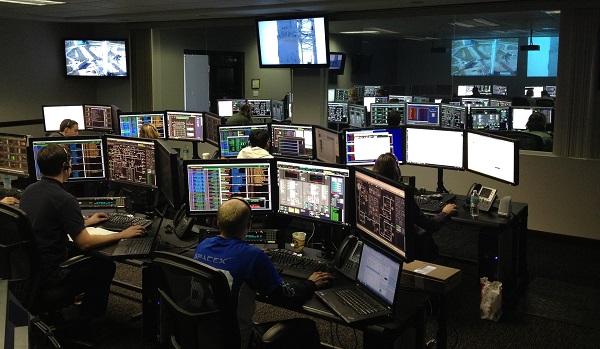Computer science is one of the highest-paying master’s degrees, but that’s not all it is. If you want more than a paycheck from your career, computer science is a great choice of occupational fields. The field of computer science is important – and personally and professionally fulfilling – because it benefits the world in several ways. Computer science gives society new and better ways of solving problems, allows for greater access to education and healthcare services and can even save lives by providing the technical tools used for predictive modeling.
Solving Problems Big and Small
Computers are made to serve people by solving problems. Many of us use computers to solve small problems, like entertaining ourselves with games, social media interactions and streaming videos and podcasts. If you think bigger, though, you will realize that computer science breakthroughs can also be applied to much bigger problems.
Small business owners often struggle to compete with larger corporations when it comes to marketing their companies and managing their operations. A big corporation has the money to spend on traditional advertising methods and on building the digital infrastructure that allows them to make sales and schedule appointments. Small mom-and-pop shops and individual service providers, like hair stylists, don’t have these assets.
When computer science professionals develop free or low-cost software programs that allow small businesses to perform some of the same functions as their much bigger competitors, these local companies have a better chance of growing and thriving. This is one of the ways that computer science can help make things fairer for overlooked and traditionally marginalized populations – whether due to race, sex, gender, socioeconomic class or any other demographical property – and empower these individuals and communities.
Can computer science also tackle problems that exist on a national or even global scale? Absolutely. Human rights matters, environmental issues, poverty and many other issues can be addressed, at least in part, through the use of computer technology. Benetech, DataKind and other online services work to confront humanitarian issues and help nonprofit organizations, often by connecting communities in need with the computer science professionals with the skills to develop the technology that helps them.
Taproot is another site that serves this goal of solving problems that matter with computer science. The work opportunities listed on Taproot are all volunteer, but they can be valuable for building experience or just giving back because it’s the right thing to do.
Expanding Access to Education, Healthcare and Communication
Today, online college studies, telehealth visits with medical providers and methods of text and video communication are commonplace – and computer science is to thank for that. The advancement of computer technology has made it possible to get services virtually and remotely, which expands access to these services to the people who need them most. If you can’t travel to a university due to distance, cost or your work schedule, you can take classes online. When you need to consult a doctor but can’t get transportation to the office at short notice, a telehealth visit can allow you to get your concerns answered and your needs met. Computer technology keeps evolving, making these services faster, more reliable and more widely available.
Communication and self-expression have also become far more accessible because of computer technology. In the days before the Internet, people couldn’t just put up a social media post, write in a blog or make a publicly available video speaking their minds.
Providing the Technological Innovations That Save Lives
In some instances, computers really do save lives. Computers excel at quickly and accurately analyzing data. That data can often be used to make predictions. There are plenty of ways predictive algorithms can be used, from forecasting business and financial performance to predicting the songs a listener to a digital media service wants to hear and the items a visitor to an e-commerce site wants to purchase. However, an even more important function of analyzing data and making predictions is identifying the risks of disasters before they happen.
Using meteorological data, it’s possible to monitor weather patterns and prepare for the risks of severe inclement weather and natural disasters. Public health experts can use similar data modeling technology to predict disease outbreaks and, ideally, intervene or respond to treat the sick and minimize the spread of illness. NASA uses computer modeling technology, along with data gleaned from examining space through telescopes, satellites and manned and unmanned exploration, to predict the possibility of comets and other bodies striking the Earth.
IMAGE SOURCE: Pixabay, public domain
Predicting potential disasters with a high degree of accuracy is the first step to solving these problems and preventing injuries, the spread of infectious diseases and unnecessary losses of life.
Additional Resources
Is the Field of Computer Science Becoming Obsolete?

